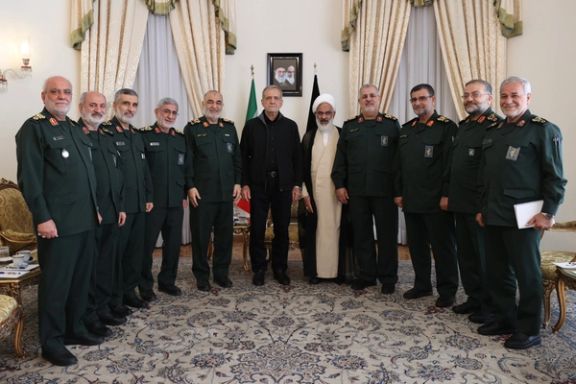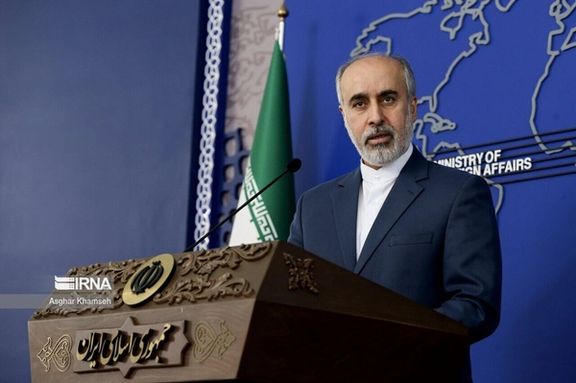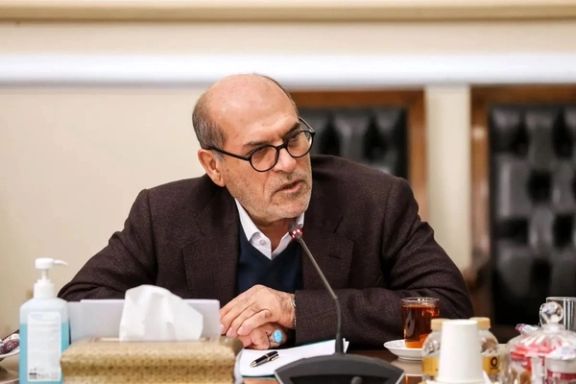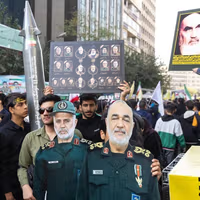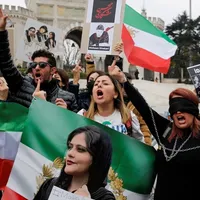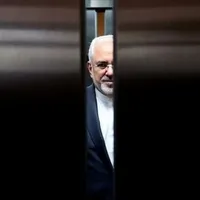Former national security advisor John Bolton tweeted on Friday that the White House has failed to hold Iran responsible for the mayhem in the Middle East.
"Biden still has not acknowledged Iran as the chief aggressor in the Middle East. Americans must know that Tehran is using terrorist proxies like Hamas and Hezbollah to wipe out Israel, and the U.S. is next. This is a failure for our national security," Bolton, who is both a critique of Biden and former President Donald Trump said.
Earlier in the week, Senator Lindsey Graham (R-SC), who co-authored Public Law 117-263, Section 5593 of the Iran Nuclear Weapons Capability and Terrorism Monitoring Act of 2022, accused the administration of violating the law by missing crucial deadlines.
The law mandates a biannual assessment to Congress on Iran’s uranium enrichment and nuclear weapons development progress which led the United Nations' nuclear chief Rafael Grossi to admit recently that Iran is "weeks not months" away from a nuclear weapon.
In a letter to Avril Haines, the Director of National Intelligence, Senator Graham stated that the administration is "in violation of the law" for missing two Section 5593 assessment deadlines in the past year and failing to submit Section 7413 assessments when Iran reaches major enrichment thresholds.
A coalition of US foreign policy and advocacy organizations this week urged policymakers to intensify their focus on countering the Iranian nuclear threat.
The Vandenberg Coalition and the Foundation For Defense of Democracies Action led the letter signed by nine other organizations, which provides a comprehensive list of recommendations for US and allied policymakers to “degrade and reverse Iran’s nuclear campaign, deter Iranian terror and empower Iranian dissidents.”
According to the letter, Tehran continues to fund terrorism, develop dangerous weapons, oppress its own people, and take foreign hostages, demonstrating a longstanding resistance to reform. It emphasizes that Iran has accelerated its nuclear program, necessitating a comprehensive response from US policymakers.
The coalition asserted that "The election of Masoud Pezeshkian as Iran's President will neither resolve these issues nor alter Iran's trajectory," emphasizing that Iran’s security policy remains firmly under the control of the Supreme Leader. They further stated that the President lacks authority over the security services or the actions of the Islamic Revolutionary Guard Corps (IRGC).
The letter, addressed to US policymakers, outlined a set of measures designed to address the multifaceted challenges posed by Iran. The strategies include:
- Degrade and Reverse Iran’s Weapons Program: Use international pressure, trigger UN arms embargo provisions, and require regular reporting on Iran’s nuclear activities.
- Deter Iran from Aggression and Terrorism: Strengthen alliances, expand sanctions, and hold Iran accountable for proxy actions.
- Empower Internal Dissidents: Provide Iranian dissidents with knowledge, resources, and internet access, highlight their plight, and offer reform support programs.
- Ensure American Defense: Provide adequate defense resources, develop military options to prevent nuclear acquisition, and enhance border security and cyber resilience.
Tehran's covert actions and refusal to fully cooperate with the International Atomic Energy Agency (IAEA) have heightened suspicions about its intent to develop nuclear weapons, potentially triggering a regional arms race.
Recent reports from the Institute for Science and International Security (ISIS) and the Washington Post indicate that Iran plans to significantly increase its uranium enrichment at Fordow, one of its most secretive nuclear sites. Experts have warned that within a month, Iran could produce enough weapons-grade uranium for five nuclear weapons at Fordow.
In June, the UN nuclear watchdog's Board of Governors passed a resolution censuring Iran and demanding it resolve outstanding issues with the IAEA regarding its advancing nuclear program. The IAEA's June report stated that Iran continues to expand its nuclear activities in ways that "have no credible peaceful purpose." The IAEA has demanded Iran enhance cooperation with the agency and reverse its recent barring of inspectors.


